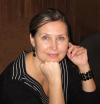Rayevskaya E. FEATURES OF EMOTIONAL STATE OF FIRST-YEAR STUDENTS IN THE CONTEXT OF EDUCATION CONTINUITY. LIFELONG EDUCATION: The 21st Century.
2019. № 4 (28).
DOI: 10.15393/j5.art.2019.5148
| Issue 4 (28) |
Problems of continuity of training and education in Russia |
|
FEATURES OF EMOTIONAL STATE OF FIRST-YEAR STUDENTS IN THE CONTEXT OF EDUCATION CONTINUITY
 | | Rayevskaya Elena
PhD in Phychology
associate professor at the Chair of the theory and methods of general and professional education, Institute of Methodology and Psychology, Petrozavodsk State University
(Petrozavodsk, Russia)
raevskaya_nazar@mail.ru |
Keywords:
adaptation
maladaptation
freshman
markers of emotional states. |
Abstract: the article considers the problem of adaptation of first-year students at the university in the context of education continuity and the continuity of the levels of secondary full general and higher education. On the example of a survey conducted on a number of 1052 respondents, markers of emotional states are considered as indicators of adaptability (or mal-adaptability) at a university; the identified relationships between self-esteem of adaptation, formats of intermediate certification and various emotional states of freshmen data are presented. It was revealed that during the period of adaptation at the university, graduates of general educational organizations (high schools) experience mixed polymodal states. Positive emotions are markers of successful adaptation, negative emotions stand for maladaptations. Both adapted and non-adapted freshmen note fatigue − a condition that can be caused by excessive workload (physical or mental) and hinder the continuation of educational activities at a normal level. From 30% to 60% of yesterday's high school students are in a stressful situation, over 18% are maladaptive. The article proposes promising areas of work to overcome the maladaptation for first-year students.
|
Paper submitted on: 09/12/2019; Accepted on: 11/15/2019; Published online on: 12/25/2019.
References
- Gurevich, P. S. Psihologicheskij slovar' / P. S. Gurevich. – Moskva : OLMA Media Grupp, OLMA Press Obrazovanie, 2007. – 800 s.
- Izard, K. Je. Psihologija jemocij / K. Je. Izard. – Sankt-Peterburg : Piter, 1999. – 464 s.
- Il'in, E. P. Jemocii i chuvstva / E. P. Il'in. – Sankt-Peterburg : Piter, 2001. – 752 s.
- Meshherjakov, B. G. Bol'shoj psihologicheskij slovar' / B. G. Meshherjakov, V. P. Zin-chenko. ‒ SPb. : Prajm-Evroznak, 2003. – 632 s.
- Simonov, P. V. Jemocional'nyj mozg / P. V. Simonov – Moskva : Nauka, 1981. – 150 s.
- Terent'ev, K. Ju. Otchet po statisticheskoj obrabotke rezul'tatov oprosa po proektu zakaznoj tematiki «Razrabotka organizacionnyh reshenij i metodik dlja sistemnoj raboty s neuspevajushhimi studentami» / K. Ju. Terent'ev. ‒ Petrozavodsk, 2019 (rukopis').
- Raevskaja, E. A. Adaptacija studentov pervogo kursa v vysshem uchebnom zavedenii (na primere Petrozavodskogo gosudarstvennogo universiteta) [Jelektronnyj resurs] / E. A. Raevskaja, A. S. Suhorukov // Nepreryvnoe obrazovanie: opyt Petrozavodskogo gosudarstvennogo universiteta. ‒ 2013. – Vyp. 2.– S. 92‒104. – Jelektron. dan. – URL: http://old.petrsu.ru/Institutes/ICE/ce_271113.pdf ‒ (data obrashhenija 10.09.2019).
- Raevskaja, E. A. Adaptacija studentov pervogo kursa v vysshem uchebnom zavedenii: opyt, problemy, perspektivy (na primere Petrozavodskogo gosudarstvennogo universiteta) [Jelektronnyj resurs] / E. A. Raevskaja // Nepreryvnoe obrazovanie: opyt Petrozavodskogo gosudarstvennogo universiteta. – 2014. – Vyp. 2.– S. 72‒91. – Jelektron. dan. – URL: http://elibrary.ru/item.asp?id=23256352 ‒ (data obrashhenija 10.09.2019).
- Raevskaja, E. A. Osobennosti dinamiki processa adaptacii studentov-pervokursnikov v universitete: pervaja sessija / E. A. Raevskaja // Nepreryvnoe obrazovanie: XXI vek. − 2016.‒ Vyp. 3 (15). ‒ DOI: 10.15393/j5.art.2016.3205 ‒ (data obrashhenija 10.09.2019).
Displays: 8459; Downloads: 740;
DOI:
http://dx.doi.org/10.15393/j5.art.2019.5148












